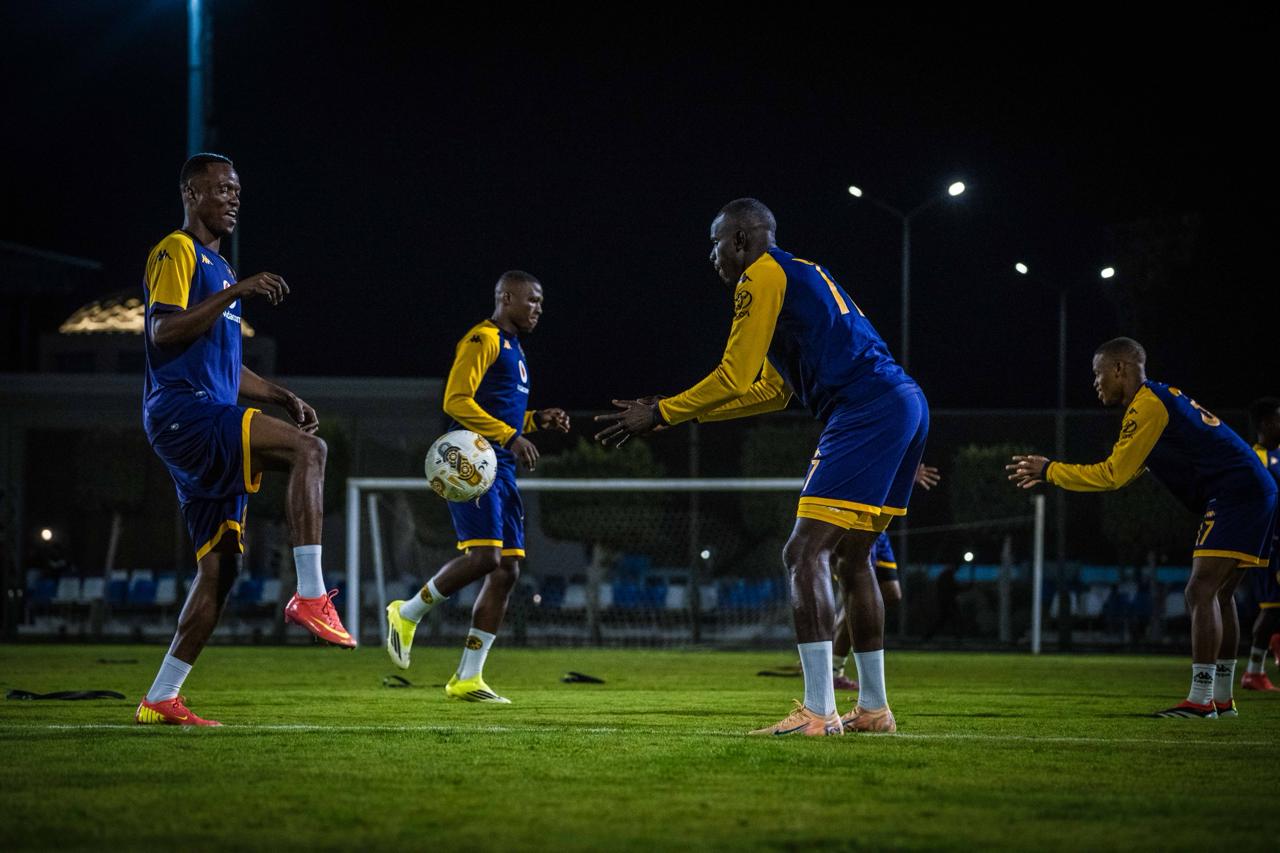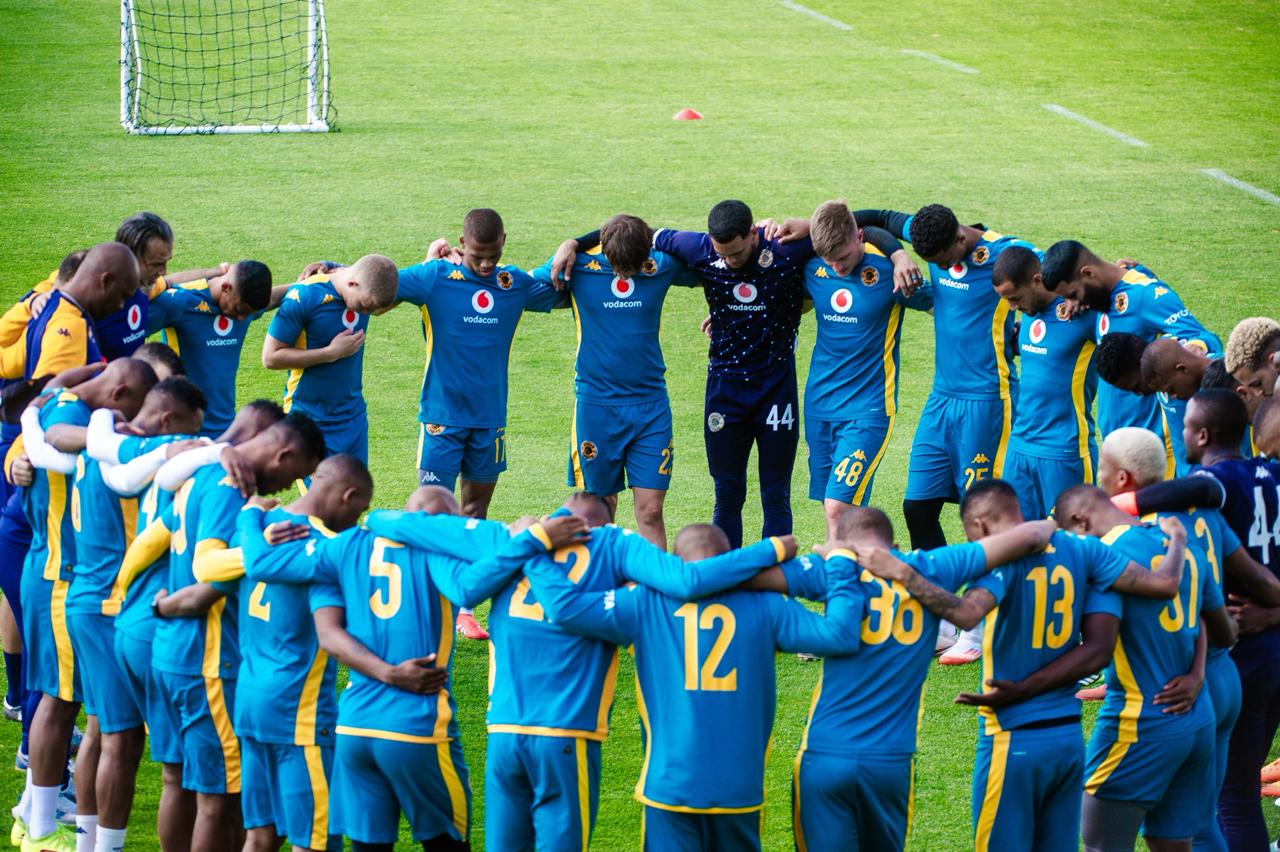Posted in Features, News on Jan 07, 2018.

Motaung also wants to express his sincere gratitude to the “founding fathers of this club as they made a significant contribution. We stand today on their shoulders.” Two of the players who were there when the club was launched are the legendary goalkeeper Joseph ‘Banks’ Sethlodi and the strong defender Jackie Masike.
“We were at the house of Kaizer’s parents in Phefeni,” Masike remembers that historic day in 1970. “Several players and officials were present. We had been doing well from late 1969 as Kaizer’s XI and we were going to receive some money.”
At a stage Motaung asked the players when they planned to return to their respective clubs. “Go back to where?” Masike and the others responded.
The late Ariel “Pro’ Kgongoane added: “We get paid R120 here, while at my previous club I received about R10 per game.”
That’s when Sethlodi, who had an offer to join Orlando Pirates, stated: “I am not going anywhere.”
Kaizer Motaung had starred for Atlanta Chiefs in the United States of America in the late sixties. He not only showed his soccer talent, but he also picked up valuable lessons on how to run a club in a professional manner and to ensure its financial viability. After the success of Kaizer’s XI, Motaung started contemplating about how to implement those lessons in South Africa.
However, to start a new club needs a lot of courage. It’s something Motaung had in abundance. He also got support from players, officials and, above all, his mother and father.
“Kaizer had a dream,” Sethlodi comments. “Every human being has a dream. But the question is whether you are strong enough to follow your dream, as the road forward will be layered with numerous obstacles. Fortunately, Kaizer had a dream to start this club called Kaizer Chiefs and he pursued his dreams with passion.”
After seeing how well Kaizer Chiefs did, Sethlodi and Patrick ‘Ace’ Ntsoelengoe thought about starting their own club in the early seventies. Motaung, however, convinced the duo to stay at Amakhosi by explaining again his vision for the club and how much he wanted them to be part of it. “We realised this is ours,” the former goalkeeper reflects. “Kaizer is a visionary. We were making history and we wanted to continue being part of this journey.”
And history the club made. “We didn’t have that many supporters in the beginning,” Masike adds. “But then we started to win cups and our first league title in 1974. That’s when the number of fans grew immensely. It also helped that we had a fantastic team.”
It helped as well that Kaizer Motaung was a very popular Orlando Pirates player before founding Kaizer Chiefs. Because of this, not only Pirates supporters, but also from other clubs, started to follow Chiefs. Above all, a lot of supporters who were sitting on the fence and who were waiting for something new and fresh, became fervent Amakhosi fans.
“Furthermore, we usually played two matches per weekend,” Masike continues, “a league clash and a friendly somewhere in South Africa to market ourselves. We played all over, even in countries like Namibia, Botswana, Lesotho, Swaziland and Rhodesia, as Zimbabwe was named at the time.“
Since those early days, Kaizer Chiefs have grown into a club with the largest supporters base. They have won a record 68 official trophies and other 28 unofficial trophies, including the Vodacom Challenge and the Carling Black Label Cup.
The Kaizer Chiefs headquarters and the training facilities at the Village in Naturena are something to behold. There are five pitches for the first team squad and various youth development sides to train on. There is also a top of the art High Performance Centre as well as a KC Retail store, where people can buy Kaizer Chiefs merchandise.
“It feels good to have been part of this exceptional journey,” Sethlodi says. “We never thought that we would become that big, even though we realised having an outright chance to conquer the clubs in Soweto in those days, Orlando Pirates, Moroka Swallows Big XV and Pubs.”
“We had to take some tough decisions over the years,” Motaung reflects. “Crucial during those testing times was that we could always rely on our supporters to be with us, also when some of the founding fathers left. The journey continued and the baton was passed over to those who took over the journey, which helped us to move forward.
“I would like to express my sincere gratitude to those who have been part of this journey and for their contribution past and present. We look forward to the challenges facing us.
“We now need to reinforce the pillars that have been established and commit to the continued evolution of the club. Thank God, we are blessed to be part of this incredible journey of Kaizer Chiefs.”





